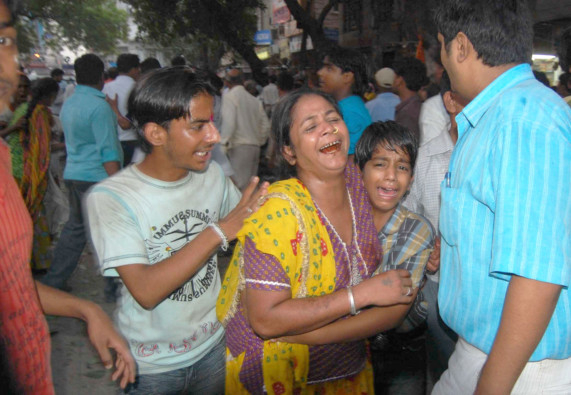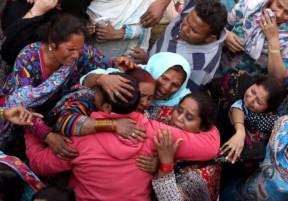
Dubai/Islamabad
When discussing the rise of extremism as an offshoot of India’s partition, one ought to keep in mind two distinct but virtually complementary parameters: On the one hand, the rise of militant nationalism as a violent counterbalance to a colonial hegemon like the British. And on the other, consolidation of socioeconomic, political and ideological space within undivided India, primarily using religious identity as a stratagem.
As the demand for partition and the counter-logic became increasingly politicised, these two strands — that of the growth of a militant nationalist spirit, and taking recourse to religion as a cogent for usurpation of social and ideological space — acted as catalysts in a cauldron of unprecedented upheaval.
The very idea of splitting a nation into two separate political entities, with religion as the common denominator, sowed the seeds of decades of future turmoil and bloodshed.
Before independence, the call for ‘Action Day’ in August 1946 and the consequent “Calcutta killings”, the Noakhali riots in October 1946, the unprecedented trail of bloodshed during partition in 1947 — resulting in the butchering of close to two million people — and finally, the assassination of Gandhi by radical elements on January 30, 1948 — bore the unmistakable stamp of violence born out of a deep-rooted sense of mutual distrust between two communities that had shared a common geographical space for centuries.
‘Will have to cooperate’
Friendly gestures by the two countries towards each other in the past have often been marred by terror attacks in Pakistan and India, which have repeatedly derailed prospects for a peaceful resolution to the Kashmir problem.
As Kashmir continues to be the biggest unresolved issue between India and Pakistan in the post-partition era, it has only fanned the flames of extremism on either side of the border. Tens of thousands of lives have been lost over the Kashmir dispute in the 70 years since independence.
Experts feel that lack of initiative and political determination in both Pakistan and India to begin a peace process can have dangerous repercussion. Terrorism is now the biggest hurdle in the way of dialogue between the two states.
Speaking to Gulf News, senior political analyst Professor Hassan Askari said: “The issue of terrorism has stalled the peace process between Pakistan and India for more than a decade.”
According to former diplomat Aziz Ahmad Khan, “Terrorism is an issue that both India and Pakistan need to discuss and will have to cooperate with each other in order to prevent that menace from spreading.”
In addition to the Kashmir imbroglio, there is the issue of ethnic minorities on either side of the fence, such as the Nagas and Balochis, whose demand for political autonomy has often led to bloody skirmishes with the establishments in the two countries.













